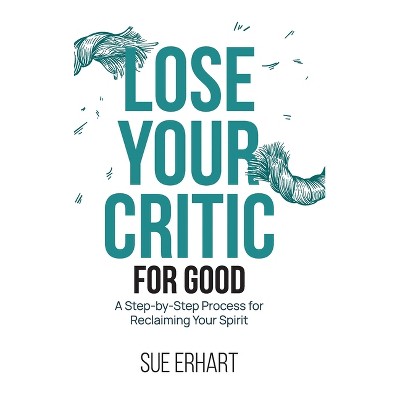Sponsored

Ours to Lose - by Amy Starecheski (Paperback)
$32.00
In Stock
Eligible for registries and wish lists
Sponsored
About this item
Highlights
- Though New York's Lower East Side today is home to high-end condos and hip restaurants, it was for decades an infamous site of blight, open-air drug dealing, and class conflict-an emblematic example of the tattered state of 1970s and '80s Manhattan.
- About the Author: Amy Starecheski is co-director of the Oral History Master of Arts program at Columbia University.
- 344 Pages
- History, United States
Description
About the Book
Before the Lower East Side was one of the most expensive and heavily gentrified neighborhoods in New York City, it was infamous as a site of class conflict, abandonment, and open-air drug dealing. With a deep radical history and a thriving arts scene, it was also the incubator for a squatting movement that blended urban homesteading and European-style squatting into something never before seen in the United States. Ours to Lose by anthropologist and historian Amy Starecheski follows a diverse group of Lower East Side squatters as they occupied abandoned city-owned buildings in the 1980s, defended them for decades, and then, in 2002, began a long and difficult process of converting their illegal occupation into legal cooperative ownership. This book does not just tell an interesting story about housing in New York. It uses this case to shed light on how property is crucial to our sense of ourselves as social beings. Starecheski also draws out surprising lessons about homeownership and the morality of debt in post-recession America. This is a timely contribution to the literature on urban housing, inequality, and direct political action by socially marginalized New Yorkers living just a few blocks from Wall Street.Book Synopsis
Though New York's Lower East Side today is home to high-end condos and hip restaurants, it was for decades an infamous site of blight, open-air drug dealing, and class conflict-an emblematic example of the tattered state of 1970s and '80s Manhattan. Those decades of strife, however, also gave the Lower East Side something unusual: a radical movement that blended urban homesteading and European-style squatting in a way never before seen in the United States. Ours to Lose tells the oral history of that movement through a close look at a diverse group of Lower East Side squatters who occupied abandoned city-owned buildings in the 1980s, fought to keep them for decades, and eventually began a long, complicated process to turn their illegal occupancy into legal cooperative ownership. Amy Starecheski here not only tells a little-known New York story, she also shows how property shapes our sense of ourselves as social beings and explores the ethics of homeownership and debt in post-recession America.Review Quotes
"Ours to Lose chronicles the decades-long struggle of urban squatters in a cluster of buildings on Manhattan's Lower East Side to win legal control of their homes. Using oral history and ethnography, the author recounts the squatters move into the buildings during the mid-1980s when the city took title over non-payment of real estate taxes. Starecheski takes us into the process, and through interviews and her analysis, we learn that not all is smooth. What is significant is that the author demonstrates how some New Yorkers addressed the housing crisis in an unconventional manner. Recommended."-- "CHOICE"
"Ours to Lose chronicles the experience of squatters who labor against formidable odds to claim space and citizenship within the neoliberal city. Combining oral history and ethnography, Starecheski offers a remarkably candid account of how our private property regime operates to enrich the wealthy, indebt the majority, and exclude the vulnerable--yet how alternative possibilities can nonetheless take root within the interstices of capitalism itself. This is a hard-hitting and important book."-- "Kathryn Dudley, Yale University"
"Ours to Lose is an extraordinarily powerful, vivid, and multi-layered investigation of the contradictory meanings of home ownership as seen through the eyes and experiences of squatters on the Lower East Side in the 1980s and 1990s. With a deep respect for the squatters whose stories form the book's core and with a bracingly realistic analysis of housing politics, Starecheski demonstrates how alternatives to the dominant property regime can emerge out of the creativity and persistence of people who refuse to accept its rules. Ours to Lose is both a wonderfully rich history of the forces that transformed New York's working-class neighborhoods and a profound inquiry into what it means to treat housing as a commodity in the twenty-first century."-- "Elizabeth Blackmar, Columbia University"
"Epic wars are waged over the right to house and home, and, though it may be hard to imagine today, Manhattan was once the chaotic battleground. In Ours to Lose, Starecheski tells the fascinating and little-known tale of the Lower East Side squatters of the Eighties. For decades the now-designer neighborhood was infamous for rampant crime, drugs, and violence, but Starecheski reveals the upside of that bygone era--a radical, European-inspired housing movement, the first of its kind in America, during which a diverse group of people would transform and fiercely defend the abandoned buildings they occupied. This true account follows squatters as they fight to turn illegal living into legal cooperative ownership, redefining what it means to own property in New York City."-- "Village Voice"
"There are many books about the Lower East Side and its recent transformation, yet none has included engagement or oral history with primary organizers in the way Starecheski has. Ours to Lose is a unique and substantive contribution to our understanding of a most distinct practice in the shaping of urban space."-- "Metropolitiques"
"This is oral history at its best: a skillful weaving of narrative and analysis, subjectivity and hard data, passion, and theory. Starecheski achieves brilliantly the goal of representing all the nuances of a complex, even contradictory, but all-important movement and process in the struggle for democratic rights and a livable city."-- "Alessandro Portelli, author of The Death of Luigi Trastulli"
"This original ethnography of a successful group of Lower East Side squatters in what is considered the ultimate luxury city--downtown Manhattan--turns the right to the city into an ambivalent struggle to gain property rights. It examines how residents' political commitments to collective and inclusive values are confronted by difficult choices and hard work in an effort to retain abandoned housing that is home to poor and otherwise homeless friends and families. The social dynamics of squatters transformation into owners is described with compassion and pride as Starecheski faces the contradictions inherent in this housing conversion."
-- "Setha Low, City University of New York"
About the Author
Amy Starecheski is co-director of the Oral History Master of Arts program at Columbia University. She won first prize in the 2016 SAPIENS-Allegra competition.Dimensions (Overall): 9.0 Inches (H) x 5.9 Inches (W) x .7 Inches (D)
Weight: .95 Pounds
Suggested Age: 22 Years and Up
Number of Pages: 344
Genre: History
Sub-Genre: United States
Publisher: University of Chicago Press
Theme: State & Local, Middle Atlantic (DC, DE, MD, NJ, NY, PA)
Format: Paperback
Author: Amy Starecheski
Language: English
Street Date: November 7, 2016
TCIN: 1006093825
UPC: 9780226399942
Item Number (DPCI): 247-35-0342
Origin: Made in the USA or Imported
If the item details aren’t accurate or complete, we want to know about it.
Shipping details
Estimated ship dimensions: 0.7 inches length x 5.9 inches width x 9 inches height
Estimated ship weight: 0.95 pounds
We regret that this item cannot be shipped to PO Boxes.
This item cannot be shipped to the following locations: American Samoa (see also separate entry under AS), Guam (see also separate entry under GU), Northern Mariana Islands, Puerto Rico (see also separate entry under PR), United States Minor Outlying Islands, Virgin Islands, U.S., APO/FPO
Return details
This item can be returned to any Target store or Target.com.
This item must be returned within 90 days of the date it was purchased in store, shipped, delivered by a Shipt shopper, or made ready for pickup.
See the return policy for complete information.











